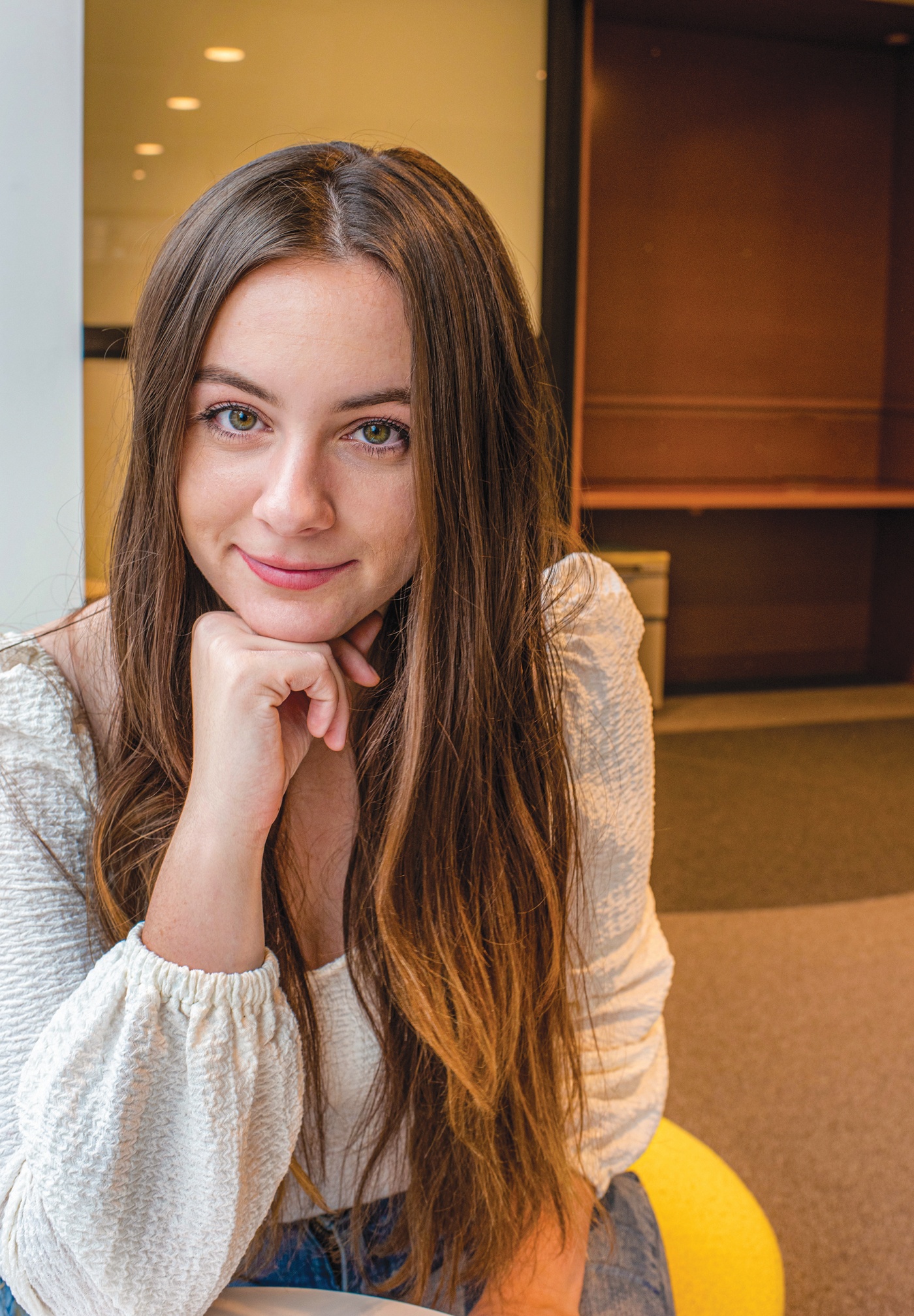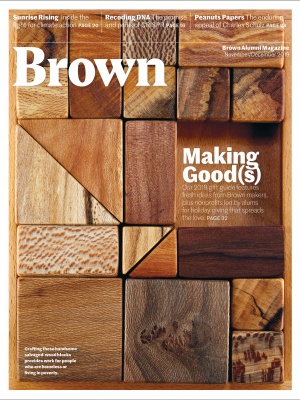As a child, Emma Butler ’20 loved clothes so much that she had a fashion blog she filled with commentary about Project Runway. When her mother was diagnosed with fibromyalgia ten years ago, Butler didn’t understand all the implications right away. But she did see how the condition affected the way her mom—a fashionista and anthropologist at Salve Regina University—was able to dress. She grew attuned to what it’s like living with disability: Getting up, getting dressed, seeking independence.
And that’s the origin story of Intimately.co, Butler’s curated online lingerie aggregator and lifestyle platform for disabled women.
Fibromyalgia is among many conditions that may mean chronic pain, limited range of motion, and pain when putting on clothing. In recent years, an adaptive apparel market has slowly taken shape, responding to demand for clothing that accommodates disability. Think bras with front fastening magnetic closures that don’t require dexterity to clasp. Panties with side clips that wheelchair users can put on without moving their feet. Period underwear that simplifies that time of the month. It’s out there—but until Intimately.co, it was hard to track down.
Butler became increasingly aware of the need at Brown as she befriended women with disabilities and cultivated an online community of disabled women from around the world. But what’s obvious to her now isn’t so obvious to others. When she tells able-bodied peers about Intimately.co, they say, “Yes, underwear with side clips—brilliant!” Yet this has long been a problem and solutions have been painfully slow. It’s a reflection, says Butler, that the needs of the disabled are rarely top-of-mind.
Butler’s twin sister (and roommate at Brown) Zoe is an economics and Africana Studies concentrator and Refugee Dream Center Fellow with a passion for sparking change. She inspired her sister to think big picture. So Emma studied visual arts, took apparel design classes at RISD, and joined Fashion at Brown—twice designing for its spring runway show. “I can make adaptive apparel that maximizes independence and minimizes the struggle to put on clothes. And others can make ramps that enable disabled people to enter buildings. But accessibility is bigger than adaptive clothing and ramps,” Butler notes.
The fashion part came easily. Starting a business, though, was an entirely new challenge. Butler tapped resources at the Nelson Center for Entrepreneurship: Professor Danny Warshay’s entrepreneurship-focused ENGN 1010 class, a B-Lab stint, and a grant to do an initial photo shoot.
She developed a proof-of-concept to show there was a market. She explored brand aesthetics, aggregated adaptive apparel vendors Dear Kate, AnaOno, and Wings Intimates, and launched Intimately.co in 2018.
Her approach is driven by the community of disabled women she has met at Brown and online. They’ve shared their stories. They have ideas. And Butler is listening.
Adaptive apparel is evolving in thoughtful ways, but Butler says the market lacks an aesthetic sense that elevates style, tone, and color. Intimately.co has a feel that’s serious, but—with its gorgeous, disabled models—also fun and sexy. One of its most popular features is a blog that Butler likens to a Cosmo for women who may feel excluded from conversations about sexuality, love, and fashion. Recent posts: “Love, Fashion, and Spastic Diplegia” and “Does Not Wanting to Date a Disabled Person Make You a Bad Person?”
Soon, Butler will introduce her own line. This is where her father, a doctor and self-styled inventor, comes in. Re-engineering garments makes sense to Butler partly because of him—he inspired her keen interest in innovation. So she’ll seek to fill gaps in the adaptive underwear market: for example, Velcro bras that are less bulky. After that, she’d like to expand into shirts and pants. Buoyed by the positive response to her site, Butler is also planning to grow her team after graduation. It’s a good bet she’ll be keeping her core players: her family.





